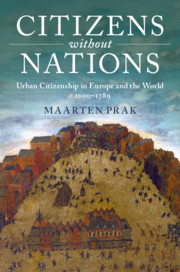Back in June
2018, when Mitra Sharafi invited me to be a guest blogger for a month, she
mentioned, among other things, that she would love a post with tips on research
productivity. I did not want to end this blogging experience without complying
with her wish.
Twenty-five
years after I defended my dissertation and with some twenty-or-less years
before I retire, what have I learned about research and writing?
The first
thing is that, although intuitively we tend to think that focusing on smaller
things and a shorter time span would enable a greater efficiency, this is
usually untrue. In my own experience, the larger and wider you look, the
quicker you understand what you see. This was a lesson my driving teacher taught
me when I was sixteen years old. She explained that if I looked right in front
of the wheels (which was what I naturally wanted to do) I would see nothing;
but that if I looked to the horizon I would see everything. I am sure she did
not mean to give me a life-long advice, but her wisdom guides me (also) as I
imagine, plan, or execute, new projects.
Looking to
the horizon requires, among other things, to ignore the most obvious and the most
travelled route. I know Robert Frost warned us that the routes we take may not
make as huge a difference as we would like to believe, but not being certain where
I was going paradoxically allowed me to better listen to the archives. I
listened not to what they told me about the past, but also to what they said about
my research question. Was it a valid question? Should it be asked differently? How
can it be divided into pieces and what should be included? At least twice the
archives told me to abandon the search altogether or they suggested that the project
I was pursing was of little interest. It was a hard lesson to learn, but I
ended up obeying.
Knowing when
to stop was a fundamental issue. Many years ago, as an MA student, my then mentor
gave me the advice that when nothing surprises me any longer, it is time to
leave. I follow his recommendation religiously, even as I tremble at the
thought that an amazing discovery may be waiting for me in the next bunch of
papers, which I will never read.
Efficiency
at the archives is one thing; another is to overcome the first blank page of a
new project. There are days in which I can write, and days that are useless. I try
to come to terms with these fluctuations, knowing that there is little I can do
to change them. When I get really stuck I go swimming. Swimming allows me a
concentration, which I cannot otherwise obtain.
Over the
years, I learned to avoid peer review. I realize this may be an unnecessary
confession, but there is nothing that
I like or find useful about peer review. Peer reviewers sometimes know more
than you, or as much as you do, but often they do not. Some are generous and
engage with your argument, but others want to impose their ideas. I know peer
review is supposed to ensure a certain quality across the board and maybe
sometimes it does, but in my own experience it mostly produces leveling. While it guarantees serious and responsible
scholarship, it disrupts attempts at doing things differently. Perhaps because
I was educated in Paris, as I matured in the American academic system I kept
asking myself whether revered French academics such as Foucault, Derrida, or
Braudel, would have ever passed a proper peer review. I am convinced they would
not. Nonetheless, our scholarly world is better because of what they proposed.
Their insights were transformative even if their method was too new, their
facts too shaky, and their tendency to generalize too extreme.
I also
believe it is important to remember that there are many ways to think about
productivity. The most obvious is to measure it by the number of books and
articles. Another is by evaluating the divergence between them, and the degree
by which they respond to different questions, methodologies, areas, or subjects
of expertise. What kinds of linguistic and archival competence is required is
another important point, as well as whether sources are available online or
demand dislocation, where to, and how user-friendly are the deposits.
Beyond all
these considerations, the greatest lesson I learned is that, although we tend
to think about productivity as a personal achievement, in earnest, it often depends
on the individuals and institutions around us. Teaching in universities with
excellent students, interesting colleagues, great libraries, and comfortable
office space, facilitates things tremendously. So does having many sabbaticals,
preferably, many more than the term usually implies. A supportive domestic and social
environment is crucial. We often give thanks to our families and friends because
of what they had endured while we did research and writing. I am thankful to
them on this account, but I am mostly grateful for the conversations they
facilitated. I found dialogues with my twin boys surprisingly illuminating.
When they were younger, I needed to explain things simply; when older, my aim
was to make them more complex. But, as I dragged them across countries and
continents, I learned a new art of explaining and discovered new ways to think
about what I believed I already knew.
There is a
famous saying that behind every successful man there is a great woman.
Fortunately, I belong to a generation that can also affirm the contrary. I am
certainly privileged to be backed by a great man. It is to him, that great man who
listens, shares, discusses, assists, reads, and advises, that I dedicate this
last piece.



